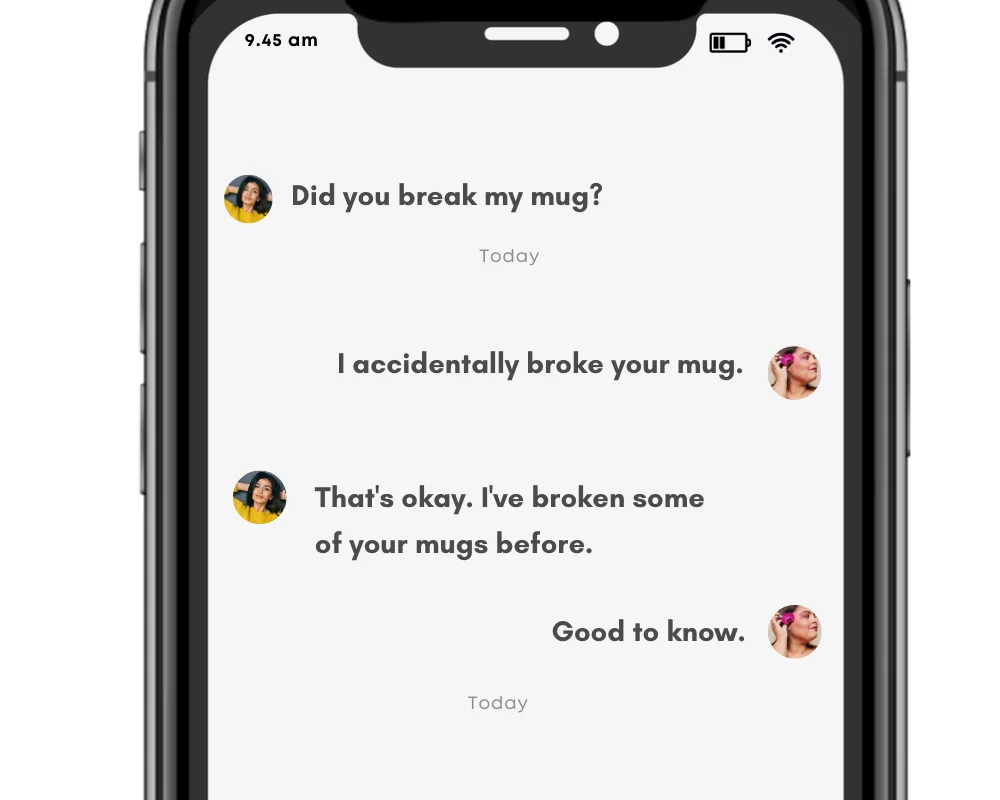
What's the past tense of "break"?
The simple past tense of break is broke, and the past participle is broken. Use broke for simple past tense and broken for past participle forms.
Definition of break
The Oxford English Dictionary defines break as "to come apart or split into pieces; to fragment, shatter; to cause to stop functioning; to violate or fail to observe (a law, promise, etc.)." It can be used both literally and figuratively.
- The past tense of break is broke.
- The past participle of break is broken.
Verb forms of 'break'
Is "break" a regular or irregular verb?
Note: Regular verbs end in -ed in the past tense. Any other verb ending is considered irregular.
While an irregular verb, 'break' follows a common pattern where the past tense and past participle are different forms. Similar to other verbs like speak/spoke/spoken, steal/stole/stolen, and swear/swore/sworn, break uses distinct forms for past tense and past participle.
When to use "broke" vs. "broken"
I broke my leg skiing.
I heard that Bob and Lucy have broken up.
The verb break uses different forms for simple past tense and past participle. When used as a participle (shown in the second sentence), it requires an auxiliary verb like have, has, or had. The simple past doesn't use a helper verb since it's a complete tense, so broke can stand alone in sentences, whereas participles require an auxiliary verb.
Similar irregular verbs
Like break, these verbs follow the same pattern where the past tense and past participle are different forms.
Sentence examples: break, broke, broken
• Early cars tried to be faster and faster, to break the 60 mph barrier.
• I always heard marriage could break up a good friendship.
• If you break it, you replace it.
• So that was how he broke his nose.
• No one broke the silence.
• She broke down and called a lawyer.
• Her voice broke and she stopped, wiping her eyes.
• The case was broken and the keys are nearly all out.
• You are like me, too broken to pretend not to be.
• They had broken the rules.
• You don't sound very broken up about it.
Synonyms & nearby words
Synonyms for break
Nearby phrases
Origin of the verb break
From etymology online on break (v.):
Old English brecan "to divide solid matter violently into parts or fragments; to injure, violate (a promise, etc.), destroy, curtail; to break into, rush into; to burst forth, spring out; to subdue, tame" from Proto-Germanic *brekanan.
| Types of verbs & verb tenses | what’s the past tense of …? |
|---|---|
| forms of ‘to be’ | … seek? |
| auxiliary verbs | … teach? |
| present tense | … catch? |
| future tense | … buy? |
| past tense | … read? |
| perfect tense | … draw? |
| transitive vs. intransitive | … drive? |
| participles | … throw? |
| irregular verbs | … lead? |
| modals | … win? |
Practice: "Break" conjugations
He ______ his leg while skiing last winter.
The window has been ______ for over a week now.
Be careful not to ______ that antique vase.
She ______ the world record for the long jump.
My car has ______ down on the side of the highway.
FAQs
Is "break" a regular or irregular verb?
What's the past tense of "break"?
How do I use "broke" vs. "broken"?
What are the three forms of "break"?
Can "broke" be used as an adjective?
Sources
-
Oxford English Dictionary. "break, v." OED Online. Oxford University Press. Date of access 15 Jan. 2025.
-
Cambridge Dictionary. "break." Cambridge University Press. Date of access 15 Jan. 2025.
-
Online Etymology Dictionary. "break." Douglas Harper. Date of access 15 Jan. 2025.
Advertisement








.webp&w=3840&q=75&dpl=dpl_13tcGbrn5BXPQFsQmuQWqib9Y3DN)